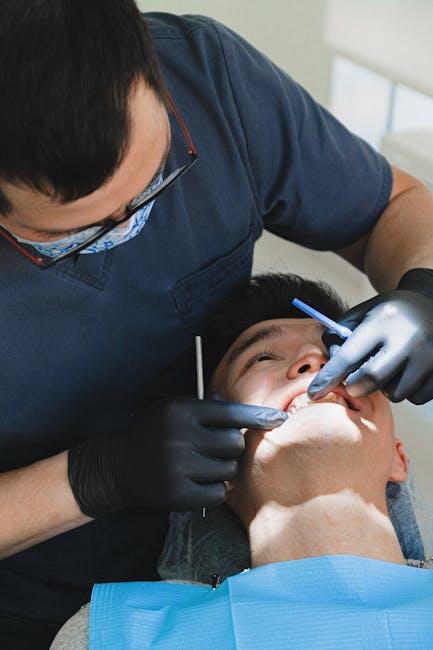
Is NC Dental Profession Oversight/Business Model About to Change?
The dental profession in North Carolina (NC) has long operated under a regulatory and business model designed to ensure quality care while maintaining professional autonomy. However, recent discussions and legislative proposals suggest that this model may be on the cusp of significant transformation. This article dives into the potential changes surrounding the NC dental profession oversight and its implications for dentists, patients, and stakeholders across the state.
Understanding the Current NC Dental Oversight and Business Model
Before examining the proposed or potential changes, it is crucial to understand the existing framework that governs dental practice in North Carolina.
- Regulatory Body: The North Carolina State Board of Dental Examiners (NCSBDE) oversees licensure, professional conduct, and disciplinary actions for dentists.
- Practice Ownership: Under current law, only licensed dentists may own dental practices, ensuring professional control over clinical decisions.
- Scope of Practice: Defined scopes regulate hygienists, assistants, and other dental professionals, preserving patient safety and care quality.
- Fee Models & Insurance: Dental businesses primarily operate fee-for-service with some insurance allowances; managed care models have limited penetration.
This professional oversight model is designed to maintain high dental care standards but has been criticized for being less adaptive to modern business practices and market pressures.
What Changes Are Being Considered?
Several evolving elements in the healthcare and business landscape have sparked debate about revising North Carolina’s dental oversight and ownership regulations. Some of the key points include:
1. Business Ownership Flexibility
One of the most discussed changes is the potential to allow non-dentists or corporate entities to own or co-own dental practices. This would represent a major shift from the traditional dentist-only ownership rule.
- Proponents argue that opening ownership could increase investment, expand access to dental care in underserved areas, and modernize operational efficiencies.
- Opponents worry it may prioritize profit over patient care and dilute professional standards.
2. Expanded Scope of Practice
There is consideration for expanding dental hygienists’ and dental therapists’ roles, possibly enabling them to perform more procedures independently or under remote supervision. This aims to improve patient access, especially in rural NC communities.
3. Regulation Modernization
The proposal might seek to update regulatory processes to better align with evolving technologies (like teledentistry), insurance models, and integrated healthcare systems.
Potential Benefits of Changing the Dental Oversight Model in NC
Should these changes pass, they could lead to important benefits for the dental profession and patients alike. Here are some predicted advantages:
- Increased Access to Dental Care: Allowing non-dental investors to open practices may boost dental availability for rural and underserved populations.
- Improved Efficiency: Modern business models could streamline administrative work and allow dentists to focus more on patient care.
- Innovation in Practice: Corporate ownership might encourage adoption of cutting-edge technologies and practice management systems.
- Broader Workforce Utilization: Expanding hygienists’ and therapists’ roles can ease dentist workloads and reduce appointment wait times.
Challenges and Concerns Surrounding Change
Every significant transformation comes with risks and hurdles. The following challenges should be noted:
- Patient Safety Risks: Critics warn that loosening ownership and scope rules may compromise care quality if profit motives overshadow ethics.
- Regulatory Enforcement: Modernized oversight will require robust mechanisms to ensure compliance and protect patients.
- Resistance from Dentists: Many practitioners fear losing control over their practices and clinical autonomy.
- Insurance Complexity: New business models might complicate billing and insurance negotiations, impacting patient costs.
Case Studies: Lessons from Other States
Looking at states that have implemented changes can provide valuable insight into what NC might expect.
| State | Change | Outcome |
|---|---|---|
| Arizona | Allowed dental therapists to practice with extended scope | Improved rural dental access; some opposition from dentists |
| California | Permitted some corporate dental practice ownership | Growth in practice numbers but increased regulatory oversight needed |
| Washington | Implemented teledentistry regulations | Enhanced rural care access, received positively by patients |
Practical Tips for NC Dentists Navigating Potential Changes
Whether or not the changes become official, it is wise for dental professionals to prepare. Here are some practical steps:
- Stay Informed: Follow updates from the North Carolina State Board of Dental Examiners and local health news.
- Evaluate Business Models: Consider how shifts in ownership and partnerships might affect your practice structure.
- Engage with Advocacy Groups: Participate in professional organizations to influence policymaking.
- Explore New Technologies: Invest in tools like teledentistry to expand service options.
- Enhance Team Training: Support staff in adopting expanded roles as regulations evolve.
Summary Table: Current vs. Proposed NC Dental Oversight Features
| Aspect | Current Model | Proposed Potential Changes |
|---|---|---|
| Ownership | Dentist-only practice ownership | Allow non-dentist/corporate ownership |
| Scope of Practice | Limited for hygienists and assistants | Expanded dental therapists and hygienists roles |
| Regulatory Body | North Carolina State Board of Dental Examiners | Same board with updated mandates and tech integration |
| Technology Use | Traditional in-person care | Increased adoption of teledentistry, remote supervision |
Conclusion
The North Carolina dental profession oversight and business model stands at a potential crossroads. With increasing calls for modernization, expanded practice ownership, and more flexible workforce utilization, NC could soon witness a paradigm shift in how dental care is regulated and delivered. While these changes promise increased access and modernized practice models, they also raise concerns about maintaining the high standards and patient-centric care North Carolina is known for.
For dentists and patients alike, staying well-informed and engaged in these discussions is essential. The future of dental care delivery in NC may look different, but with thoughtful implementation and collaborative input, it can enhance the health and smiles of North Carolinians for years to come.
Stay tuned to North Carolina Health News for the latest updates on the evolving dental landscape in NC.


